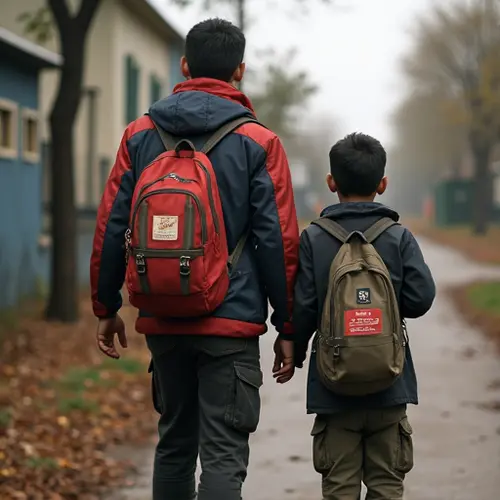Landmark Ruling Establishes Corporate Responsibility for Climate Damage
In a historic decision that could reshape global environmental law, international courts are establishing groundbreaking precedents for corporate liability and restoration obligations. The year 2025 has witnessed multiple landmark rulings that collectively create a new legal framework holding both states and corporations accountable for environmental harm.
International Court of Justice Advisory Opinion
The International Court of Justice (ICJ) issued a landmark advisory opinion on July 23, 2025, ruling that countries have comprehensive legal obligations to protect the climate system under international law. The UN's principal judicial body stated that States must act with due diligence and cooperation to fulfill their obligations under the Paris Agreement, including limiting global warming to 1.5°C above pre-industrial levels. 'This represents a victory for our planet, for climate justice and for the power of young people to make a difference,' said UN Secretary-General António Guterres.
The Court found that if States breach these obligations, they incur legal responsibility and may be required to cease wrongful conduct, offer guarantees of non-repetition, and provide full reparation. This case, initiated by Vanuatu and supported by Pacific Island youth, represents the largest case ever seen by the ICJ with 91 written statements and 97 States participating in oral proceedings.
German Court Sets Corporate Liability Precedent
Meanwhile, in Germany, the Higher Regional Court of Hamm delivered a historic precedent on May 28, 2025, that opens the path to hold fossil fuel polluters accountable globally for climate-related harms. The case, Saúl Luciano Lliuya v. RWE, involves a Peruvian farmer who claimed that German electricity producer RWE is partially responsible for glacier melt and flood risks near his home in Huaraz due to the company's 0.38% contribution to global greenhouse gas emissions.
'This ruling provides a legal foundation for dozens of pending climate cases and empowers impacted communities worldwide to seek justice through courts,' stated a legal expert from the Center for International Environmental Law. The court affirmed that climate victims can pursue justice and polluters can be held legally accountable, marking the first time a European court has recognized that companies can be held liable for climate harms occurring halfway across the planet.
Inter-American Court Strengthens Corporate Due Diligence
The Inter-American Court of Human Rights' Advisory Opinion 32/25 (AO-32/25) establishes groundbreaking legal requirements for corporate climate accountability and human rights protection. The opinion mandates that States must adopt legislative measures to regulate corporations, particularly those in fossil fuels, agriculture, construction, and transportation.
Key provisions require corporate due diligence throughout supply chains with continuous monitoring, public access to information, and participation pathways. 'This represents a significant advancement in holding corporations accountable for their climate impacts and human rights violations across the Americas,' noted a legal analyst from Columbia Law School.
Restoration Obligations and Corporate Responsibility
The cumulative effect of these rulings creates a comprehensive framework for environmental restoration obligations. Corporations now face increased regulatory scrutiny as states implement more stringent climate measures. The evolving legal landscape, combined with growing activism and scientific evidence, heightens reputational risks and potential liability for multinationals and their directors regarding climate change and biodiversity impacts throughout their value chains.
According to Hogan Lovells analysis, the ICJ opinion confirms that failure to take appropriate climate action constitutes an internationally wrongful act, potentially leading to reparations and increased climate litigation. For businesses, this means facing more stringent regulatory measures as states implement stronger climate policies and increased exposure to climate-related litigation.
Global Implications and Future Outlook
These precedent-setting decisions collectively shatter the wall of impunity for major polluters and establish that environmental harm liability extends beyond national borders. The rulings provide legal foundations for communities worldwide to seek justice and restoration for environmental damages.
'We are witnessing a fundamental shift in how international law addresses corporate responsibility for environmental harm,' said environmental law professor Dr. Maria Santos. 'These rulings create enforceable obligations that will transform how corporations operate globally.'
The legal precedents established in 2025 are expected to influence dozens of pending climate cases worldwide and may lead to new international treaties specifically addressing corporate environmental liability and restoration obligations.

 Nederlands
Nederlands
 English
English
 Deutsch
Deutsch
 Français
Français
 Español
Español
 Português
Português









